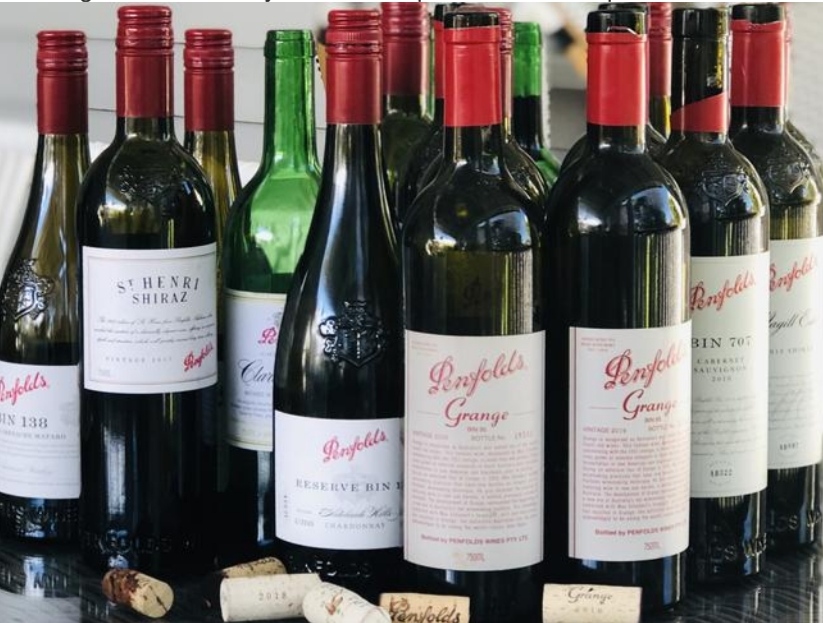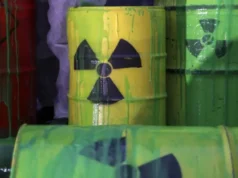Now China targets Australian wine exporters
Australian wine exporters are the latest to feel the wrath of China, after tariffs were slapped on barley and beef exports were suspended.

By
Jade Gailberger
China has launched an anti-dumping investigation into Australian wine exports in a massive blow for the industry.
The move effectively accuses Australia of flooding China with cheap wine in an effort to skew the market.
Federal Trade Minister Simon Birmingham said the investigation was “a very disappointing and perplexing development” from its largest wine importer.
“Our wine industry has worked incredibly hard to establish itself as a world-leading producer and export powerhouse,” Senator Birmingham said.
“Australian wine is highly sought after in China because of its quality.
“Australian wine is not sold at below market prices and exports are not subsidised.”
Senator Birmingham said Australia would engage fully with the Chinese processes to strongly argue the case that there are no grounds to uphold the claims being made.
“Our government will stand with the Australian wine industry to uphold their integrity and hard earned reputation for producing wines in high demand throughout the world,” he said.
More than a third of Australian wine worth $1.07 billion was exported to China in 2019-20 making it the top trading partner for the winemakers.
The United States was second, taking 15.3 per cent Australian wine exports which were worth $445 million.
South Australia is expected to be hit hard by the announcement which effects its top commodities.
The industry injected $813.9 million in the state’s economy in 2019-20.
Australia’s largest wine exporter, Treasury Wine Estates, was brought to a trading halt on Tuesday as its share price tumbled 19 per cent.

Treasury Wine Estates previously said the coronavirus pandemic had caused major challenges in the wine market, significantly impacting its main export markets the US and China.
It’s the latest blow in an apparent trade dispute between China and Australia.
In a statement, Treasury Wine Estates said it would co-operate with “any requests that we receive for information from Chinese or Australian authorities”.
The winemaker said it had “a long and respectful relationship with China over many years” through its team, partners, customers and consumers.
“As an importer of high-quality premium Australian wine including brands such as Penfolds, TWE remains committed to China as a priority market and will continue to invest in its Chinese business and its relationships with customers and consumers,” it said.
The Chinese Ministry of Commerce announced the anti-dumping investigation of Australian wine exports in China on Tuesday, after the Wine Industry Association of China made a formal application on behalf of the domestic wine industry in early July.
Imported wines in 2L containers or less are subject to anti-dumping investigations for the period of January 1 to December 31, 2019.
Authorities will also be investigating the industrial damage of wines imported during 2015, 2016, 2017, 2018 and 2019.
Australia expects the investigation to be completed by August 18, 2021. However, its also preparing for the probe to be extended until February 18, 2022.
In a statement, Australian Grape and Wine said it believed the sector was well placed to respond to the investigation.
“Australia has a large number of exporters with close cultural ties to China,” it wrote.
“The Australian industry welcomes the opportunity to build on these ties and work with the Chinese industry and government to further technical co-operation and develop lasting relationships.”
It is the third blow in a matter of months for Australian exporters, after China announced it would slap tariffs on Australian barley and suspended some beef exports over a labelling issue.
Treasury Wine Estates last week said volumes sold in the Chinese market had risen 40 per cent in June compared to the previous corresponding month.
But tensions between Penfolds and China have in the past flared with the luxury brand in April winning an almost decade-long copyright battle to get its Chinese name “Ben Fu” trademarked.
Penfolds was last year awarded compensation after winemaker Rush Rich had allegedly sold copycat bottles of wine.
Relations between Canberra and Beijing soured this year when Australia pushed for an independent inquiry into the coronavirus pandemic.
China implemented a series of seemingly retaliatory policies including urging its citizens not to travel to Australia.
Earlier this year Senator Birmingham demanded an explanation after reports China was preparing a “hit list” of Aussie exports to punish Australian farmers.



